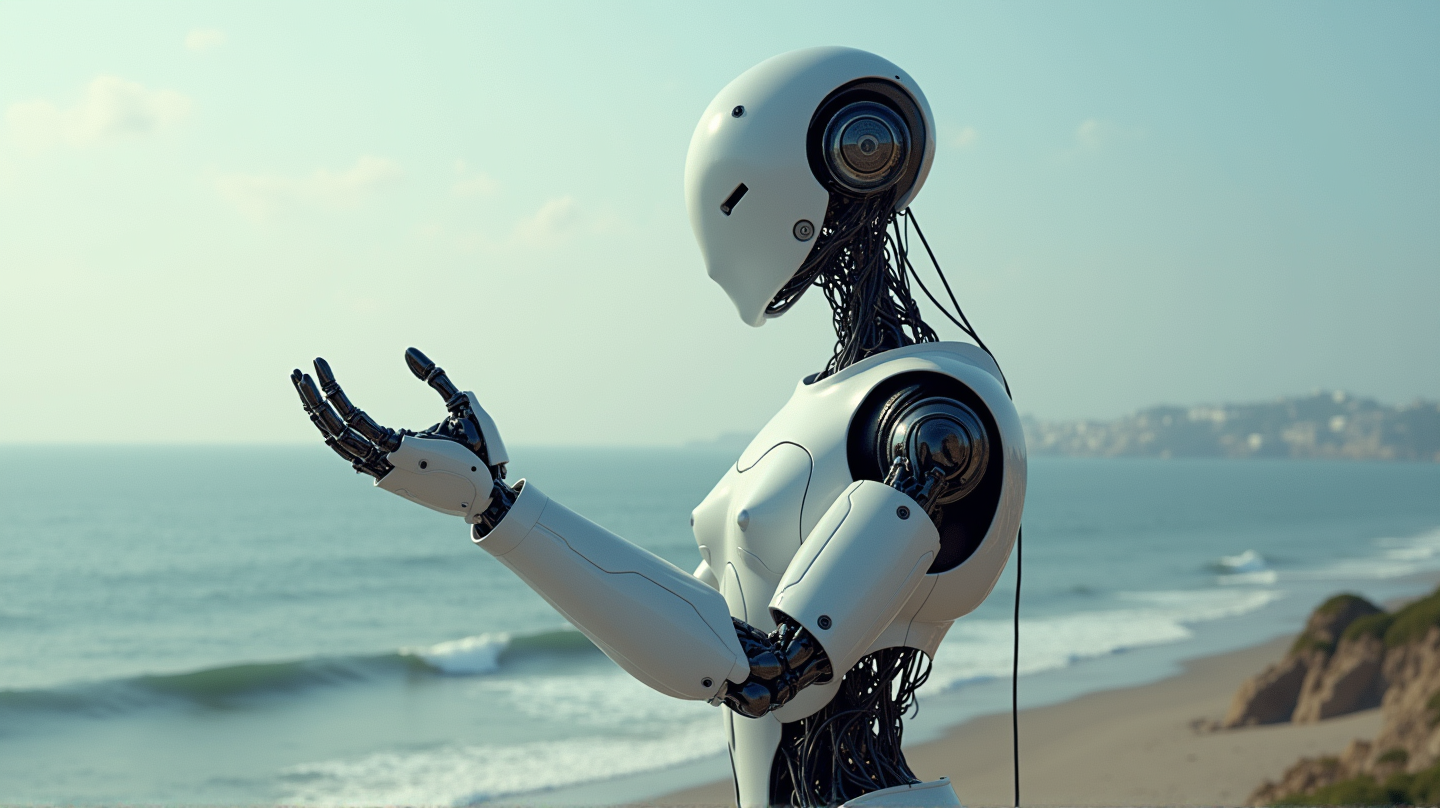The Reassuring Words of Aaron Parness
As we face a future increasingly intertwined with artificial intelligence, it’s comforting to hear from experts like Aaron Parness, Amazon’s director of Robotics. With his recent innovation—a robot that can sense touch—Parness brings optimism to those worried about a machine-dominated world.
The Reality vs. Sci-Fi Myths
Parness assures that despite advances, fears akin to the Terminator scenario remain largely fictional. He humorously suggests that relocating to coastal areas could be a joke solution because, as he jests, robots “hate saltwater. And stairs.” According to Daily Express US, these techno-titans remain far from world conquerors.
Vulcan: The Touch-Sensitive Robotics Pioneer
Developed by Parness, Vulcan represents a leap forward with its ability to feel, thanks to integrated force and torque sensors. It’s transforming Amazon’s warehouses by cautiously handling fragile items, showcasing the potential of such technology in everyday life.
The Hands that Build the Future
“Touch is a fundamental building block,” says Parness. This breakthrough could soon see robots aiding in tasks like cleaning or assisting in hospitals, emphasizing the underrated importance of tactile sensitivity, something prevalent in human hands yet new to robotics.
A Glimpse into Parness’ World
Parness paints a delightful picture of life in his research team—beer and laughter as they review robots’ weekly miscues. Whether it’s excess pressure on yogurt packs or tangles with black shiny bags, these challenges remind us that robots have much to learn from humanity’s adaptability and dexterity.
Moving Towards Human-Robot Collaboration
Parness believes in a future where robots handle repetitive tasks, leaving creativity and problem-solving to humans. Vulcan embodies this vision as it predicts and adapts, but human ingenuity will always guide AI’s collaborative potential.
Conclusion: The Human Touch
In a future balancing technology and touch, Parness embodies a reassuring tone. While Vulcan and its counterparts learn the ropes, the human touch remains essential in guiding this new age of robotics. So, rest assured, the rise of AI doesn’t spell doom—it heralds a promising evolution.
